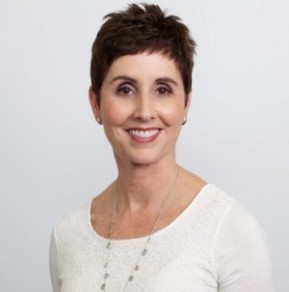A group of cosmetic surgery clinics in Miami have apparently closed down and are reopening under a new name after multiple incidents of patient death during buttock augmentation procedures. Patient deaths do occur even in the best plastic surgery operating rooms, but the decision to change the clinic name instead of own up to the truth of the matter is concerning – and maybe unethical.
Board certified plastic surgeons from across the US weigh in on the story and help to identify for patients potential warning signs with “aesthetic clinics.”
Patient Deaths Not Indicative of Poor Surgeons
One important point from this story is that just because a practice has had patient complications or even mortalities, that doesn’t necessarily say anything of value about the surgeon or physicians in question. Surgery – even elective surgery like many cosmetic procedures – is still surgery; it’s always a serious situation. Unforeseen circumstances can always arise, and unfortunately sometimes may lead to death.

In terms of this specific situation where mortalities have occurred, the clinic’s decision was to rebrand. How does this reflect on the physicians’ abilities and credentials?
“There are surgeons of all types: good, bad, and ugly,” shares Dr. Dan Del Vecchio, a board certified plastic surgeon in Boston. “And these doctors had some deaths unfortunately. You can take the argument that they probably should have kept their name and reputation, so it’s kind of deceptable. I would probably go on the side that it’s a little deceptable on their part to try to change they name. They’re trying to deceive the public… I find it unethical.”
Specifically with buttock augmentation, the best of the best have performed research recently that the procedure does have the potential for patient mortality, due to a formerly limited understanding of technique and instrumentation. A lack of understanding when it comes to new theories and procedural changes could cause fatal outcomes.
“It’s definitely technique,” shares Del Vecchio, a surgeon who often performs buttock augmentation. “It’s patient selection. It’s instrumentation. If all you do as a plastic surgeon is copy someone’s technique, you fall into the trap of not really understanding the concepts.
“I want to bring it down to the level of the patient though. These patients are traveling from all over the United States. They go to Miami because of price. The price is typically cheaper because of price pressure and competition. So if you’re flying from Minnesota or St. Louis or New York and it’s a different clinic… Those poor patients have no idea to Google the former name.”
Deception, not Incompetence
The situation with these Miami clinics does not immediately lead to their physicians lacking expertise, knowledge, or skill. Things can and do go wrong and sometimes it may have not been preventable. Even so, the ethics of rebranding to brush patient deaths under the rug is certainly questionable.
Dr. Brian Brzowski, a board certified plastic surgeon from Utah, sees this as another example of the trend away from seeking out specific surgeons to patients seeking out what’s cheap and also what’s perhaps glitzy.

“I think this is very illustrative of the transition that has happened in medicine over the decades,” Brzowski explains. “You would go to see a plastic surgeon or physician and you would go to see that surgeon, their name would be on the sign out front, so there was never any confusion about who you were going to see. We all know the business model has changed. Now we’ve got these institutes that crop up and these aesthetic centers that go by these lofty names. Ultimately what happens is that now we have these business names that have nothing to do with the personnel there.”
Dr. Pat McGuire, a board certified plastic surgeon practicing in St. Louis, tends to agree: the warning signs of this clinic seems to be it’s decision to seemingly deceive patients.
“Like Dan said, if you’re coming from some place else, you may not have heard on the news about these deaths,” Dr. McGuire explains. “The name is different, how are you going to know? A lot of the times, like Brian said, the patients don’t even know who the doctor is who is going to treat them, so they can’t even look up that physician’s record. It is very deceitful.”

The overwhelming opinion seems to be that patients need to do their homework prior to deciding on a surgeon. That is often a loaded statement that could mean immense amounts of research, but one thing is clear from this specific example: patients should know the surgeon they’re seeking to receive treatment from and their credentials, not the brand name of a “clinic” where they may not even know the physician who will be performing their procedure.















Facebook
Twitter
Instagram
YouTube
RSS